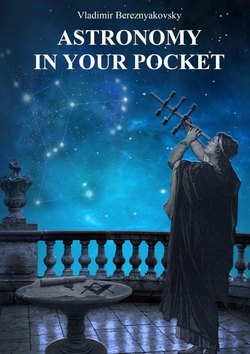Читать книгу Astronomy in your pocket - Vladimir Vladimirovich Bereznyakovsky - Страница 13
I. THE GREAT EXPLORERS
PIERRE SIMON LAPLACE
ОглавлениеFor his many achievements in astronomy, physics, and mathematics, Laplace was nicknamed the French Newton. Pierre Simon Laplace was born in 1749 in the family of a farmer in Normandy. In 1765, Laplace entered the University of Caen. The first work of Laplace was associated with the theory of gambling. In the autumn of 1770, having given up his career as a priest and decided to devote himself to science, Laplace came to Paris. In 1773, he was admitted to the Paris Academy of Sciences, and in the same year his fundamental work was published – “On the principle of universal gravitation and on the age-old inequalities of the planets that depend on it”. Laplace was one of the first to openly declare that there should be no God in science, even if you believe in him. Because of the beginning of revolutionary unrest in France, Laplace was forced to flee Paris. In the small town of Melun near Paris, Pierre Simon wrote a book “Exposition of the system of the world”, in which he collected all the astronomical knowledge of the XVIII century, without using a single formula. But the main thing – in this book, Laplace presented his hypothesis of the origin of the Solar system. He suggested that the Solar system was born out of a hot gas nebula that surrounded the young Sun. As it cooled, the nebula began to shrink, and due to the rapid rotation, the centrifugal forces became comparable to gravity, and the nebula flattened, becoming a disk that began to break into rings. The matter in each ring began to thicken, becoming a protoplanet. This theory has existed for more than 100 years, but had a number of significant drawbacks. Also in his book, Pierre Simon came to the conclusion that there are bodies in the Universe with such a huge mass that even light can not leave them. Such bodies are now called black holes. Despite the armed coups in France, Laplace continued to work hard, becoming a member of most of the European academies, and in 1808, he became a member of the French Academy of Sciences. Napoleon, as Emperor, gave Laplace the title of count of the Empire. After the fall of Napoleon and the restoration of the Bourbon dynasty, Laplace received the title of Marquis, became a peer of France, and was awarded the highest order of the Legion of Honor. In 1827, Laplace fell ill and died at the age of 77. His last words were: “What we know is so insignificant compared to what we don’t know.”
